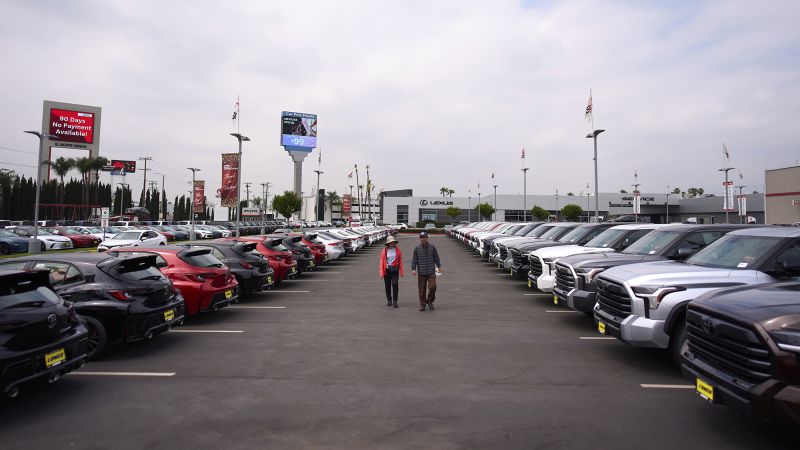
Should you buy or lease a car now?
CNN
didn’t produce as many cars during the pandemic, and those cars would be in the used marketplace today. And as prices go up, more people will look into buying used cars, spiking demand.
With a 25% tariff about to hit every imported car, many Americans are wondering whether it’s better to buy or lease a vehicle before tariffs go into effect, or wait to see how things will play out. The simple answer is to buy now, experts say, especially if you are already in the market for a car. “The riskiest thing to do is to hold off and see what happens,” Aaron Bragman, the Detroit bureau chief of automobile shopping site Cars.com, said to CNN. “We’re fairly confident that costs and prices are going to go up — that’s just the basic economics of tariffs.” President Donald Trump last week announced a 25% tariff on all cars imported from foreign countries, including Canada and Mexico. The tariff could raise prices between $5,000 to $15,000 per vehicle, depending on the make and model, according to Goldman Sachs estimates. And the Trump administration could further send the automobile industry spiraling if it follows through with its plan to enact tariffs on car parts — since even American-made cars import a significant portion of their parts from Canada and Mexico. That could further slam car buyers if enacted. For example, cars from Ford, Chrysler, GM and Honda are expected to face cost jumps from $4,000 to $10,000, according to a February estimate from Michigan-based think tank Anderson Economic Group. Electric car buyers are expected to pay at least $12,000 more per vehicle. Some Americans have already begun rushing to dealerships to buy vehicles before price increases take place. And for those who haven’t made their way to the dealership, there’s still been a spike of interest in car-buying.

Despite rattled financial markets, threats of retaliation and some of President Donald Trump’s biggest supporters encouraging him to back off his signature economic policy, he didn’t give in. His administration piled on heaps of new “reciprocal” tariffs Wednesday on dozens of American allies and adversaries alike, aiming to — as he claims — restore fairness and boost American manufacturing.





















 Run 3 Space | Play Space Running Game
Run 3 Space | Play Space Running Game Traffic Jam 3D | Online Racing Game
Traffic Jam 3D | Online Racing Game Duck Hunt | Play Old Classic Game
Duck Hunt | Play Old Classic Game










